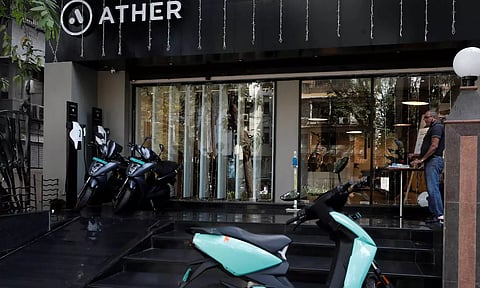

NEW DELHI: Policy predictability is needed to make investment plans for accelerating electric mobility in the two-wheeler segment, according to electric two-wheeler maker Ather Energy chief business officer Ravneet S Phokela.
The company, in which Hero MotoCorp is a significant investor, expects 100 per cent electrification of the domestic two-wheeler market by 2030 even as it prepares to start exports to an India-like market in the near future. With the FAME-II (Faster Adoption of Manufacturing of Electric Vehicles in India) scheme coming to an end in March next year, Phokela said Ather is happy with the government support and the current levels of subsidy but hoped that it would be extended for another three to five years for acceleration of EV adoption.
“Two requirements, extend the period of time and importantly, let there be policy predictability,” he said when asked about the company’s wish-list for FAME III. He further said,”Unpredictability is not good for business because my business plans are based on a certain assumption of subsidy. If the assumption changes then the plans change and if I’m not certain about my plans, I can’t make investments.”
Ather Energy had planned to set up a third plant with a capacity of 10 lakh units annually but so far has not finalised a location. “Should I make a 1 million plot or half a million plot? Whatever might be the structure (of subsidy), don’t change it. Please make it predictable, so that we can make investments,” Phokela said. In terms of subsidy, he said,”We are happy with the current levels (around Rs 21,400 per vehicle). We’re not even recommending taking subsidies back to higher levels because that is unnatural. It just forces the market to become more comfortable than they actually should be in terms of the price structures.”